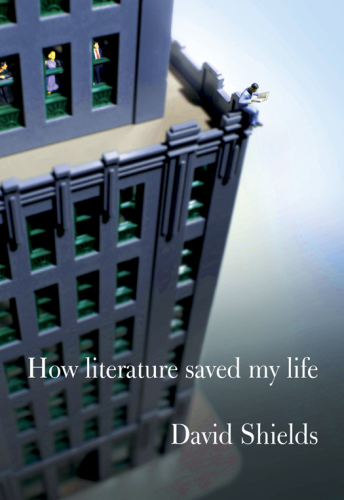
The Thing About Life is That One Day You'll Be Dead
کتاب های مرتبط
- اطلاعات
- نقد و بررسی
- دیدگاه کاربران
نقد و بررسی

February 4, 2008
Inspired by the immense vitality of his 90-something father, author Shields (Body Politic: The Great American Sports Machine) looks at the arc of a human life in order to come to terms with mortality. Organized into four stages of life-infancy and childhood, adolescence, adulthood and middle age, old age and death-Shields's short, snappy chapters are crafted from personal anecdotes (many featuring his wife and teenage daughter), literary-philosophical musing and enlightening scientific data, examining a wide range of human concerns relating to "the beauty and pathos in my body and his body and everybody else's body as well." Shields also visits historical and contemporary figures, from Sigmund Freud to John Ruskin and Woody Allen, for their thoughts on mortality; says Picasso, "One starts to get young at the age of sixty, and then it's too late." Shield's eclectic approach and personal voice makes this extended meditation on living and dying a pleasing and occasionally profound read.

February 15, 2008
If you're comfortable with your own mortality, you'll enjoy the reflections offered by Shields on life (his own and that of his 97-year-old father) and death. Award-winning author Shields (English, Univ. of Washington; "Dead Languages") explores the human experience from infancy to death and beyond, briefly addressing the notion of human immortality. The anecdotes he shares about his own life are vivid, engaging, and, above all, honest. He admits, for example, that his father's determination to live fully (and forever) generates in him feelings of both love and hate. Interspersed with his own story are numerous startling facts about the human condition, e.g., that we will take approximately 850,000,000 breaths in a lifetime and that the brain of a 90-year-old is about the same size as that of a three-year-old. In addition, Shields offers dozens of memorable quotations from sources ranging from Sibelius and John Wayne to Bertrand Russell and Neil Young. Shields compels readers to examine the mysteries of life and death, but if thoughts of "the end" depress you, take solace in the knowledge that Shields's book also comes to an end. Recommended for public and academic libraries. [See Prepub Alert, "LJ" 10/1/07.]Anthony Pucci, Notre Dame H.S., Elmira, NY
Copyright 2008 Library Journal, LLC Used with permission.

February 1, 2008
Its not every day that a novelist tells unsuspecting readers the dimensions of his erection. But its just one among many personal admissions offered up by fiftysomething Shields (Body Politic, 2004) in this informative and occasionally unsettling meditation on his own aging body and his nonagenarian fathers seemingly endless vigor and strength. (Both ornery and affable, 97-year-old Milton Shields might have been an entertaining addition to the cast of the 1993 hit movie, Grumpy Old Men.) Shields ruminations on his pimply adolescence and prickly adulthood are more engaging than his copious gatherings of biological facts, many of which seem to have a, ahem, pelvic thrust. He writes with great candor (and at least of pinch of envy) about the vitality of his father, who at age 70 still got plenty of action in the sack. Also woven into the text here are clever quotes on matters corporeal from the likes of Wordsworth, Wittgenstein, Woody Allen, and Martha Graham. Shields memoir is a sobering, at times poignant, reminder that none of us gets out of this life alive.(Reprinted with permission of Booklist, copyright 2008, American Library Association.)

























دیدگاه کاربران